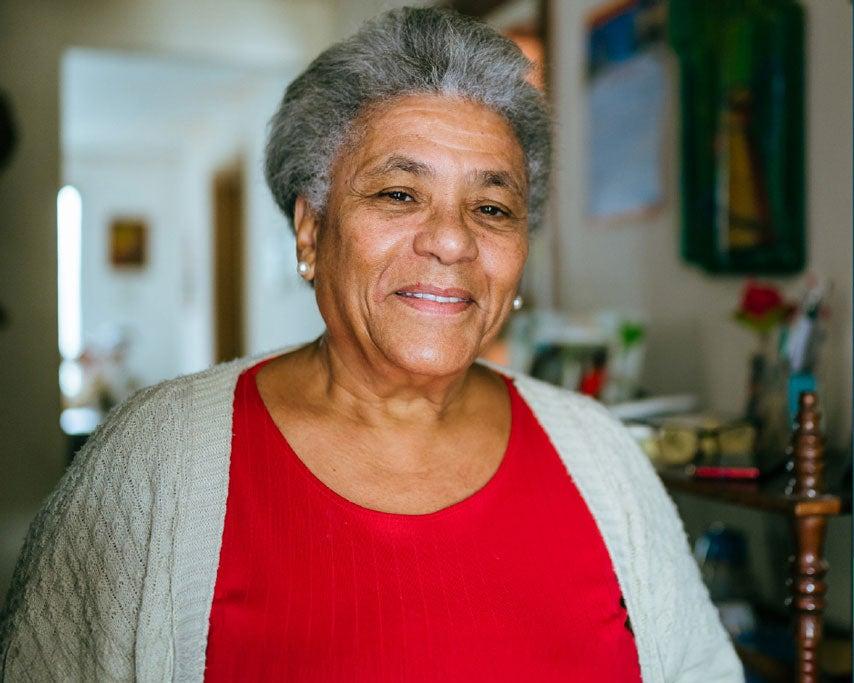NCOA Convenes Roundtable on Obesity and Equitable Aging
3 min read

12+ groups discuss policy solutions for older Americans
Contact
Maurisa Potts
Spotted PR
703-501-6289
maurisa@spottedmp.com
Arlington, VA (October 28, 2021) — The National Council on Aging (NCOA), the national voice for every person’s right to age well, recently convened a roundtable discussion on the obesity epidemic, which impacts more than 4 in 10 Americans with a disproportionate toll on communities of color, including American Indian, Alaska Native, Native Hawaiian Elders, Black, and Hispanic adults.
Leading national experts discussed possible solutions and policy recommendations to build a holistic and equitable approach to obesity prevention and management among older adults, including expanded Medicare coverage.
The roundtable was facilitated by Dr. Fatima Cody Stanford, obesity medicine physician, scientist, educator, and policymaker at Massachusetts General Hospital and Harvard Medical School. Members of the Diverse Elders Coalition participated in the conversation, as did the National Caucus and Center on Black Aging, American Medical Association, National Asian Pacific Center on Aging, National Indian Council on Aging, Defeat Malnutrition Today, The Gerontological Society of America, SAGE (Services and Advocacy for GLBT Elders), National Indian Health Board, Alliance for Aging Research, National Hispanic Council on Aging, and the American Geriatrics Society.
“It’s past time for policymakers to recognize obesity as a serious, chronic disease and a dire health equity issue,” said Dr. Stanford. “I was proud to facilitate this important conversation about the impact of obesity on diverse aging populations and steps Washington must take to provide obesity care now.”
“The millions of diverse older Americans living with obesity deserve access to the highest standard of care and scientifically proven treatments for obesity,” said Dorothea Vafiadis, Director of Health Partnerships and Strategic Engagement for NCOA. “We had a productive conversation about the impact of obesity on our communities and next steps that must be taken to provide relief for the millions of Americans living with obesity.”
Nearly 100 million Americans are living with obesity, including 43% of adults over age 60, and the rate of obesity is steadily increasing. Obesity is a chronic disease linked to more than 200 serious health conditions, including heart disease, diabetes, high blood pressure, and strokes, as well as a leading comorbidity for serious cases of COVID-19, second only to old age. Obesity also disproportionately impacts communities of color. Nearly half (49.6%) of Black and 44.8% of Latino Americans are living with obesity, compared to 42.2% of white Americans, putting communities of color at higher risk of other serious chronic diseases.
Unfortunately, obesity care is out of reach for tens of millions of older Americans because of outdated Medicare rules that fail to recognize obesity as a serious disease. Despite a 2013 decision by the American Medical Association recognizing obesity as a disease, Medicare denies access to potentially lifesaving anti-obesity medications and places undue restrictions on intensive behavioral therapy for obesity.
The roundtable participants plan to develop a white paper addressing the health inequities related to obesity and potential policy changes that could have the greatest impact on treatment and coverage gaps, risk factors, chronic disease management, stigma, and inequities.
About NCOA
The National Council on Aging (NCOA) is the national voice for every person’s right to age well. We believe that how we age should not be determined by gender, color, sexuality, income, or zip code. Working with thousands of national and local partners, we provide resources, tools, best practices, and advocacy to ensure every person can age with health and financial security. Founded in 1950, we are the oldest national organization focused on older adults. Follow us at @NCOAging.
